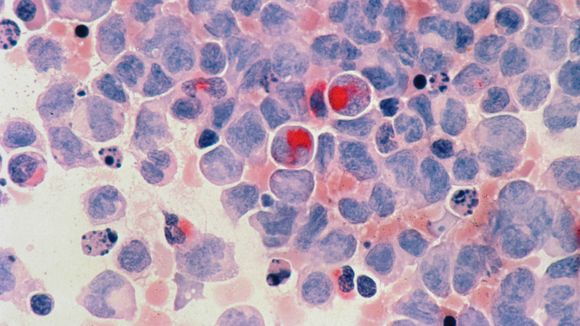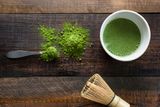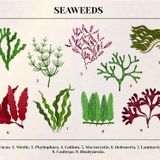Symptoms
Unexplained Weight Loss
One of the earliest signs of pancreatic cancer is unexplained weight loss. If you notice a sudden drop in your weight, especially without any changes in diet or exercise routine, it could be a cause for concern. This symptom often occurs due to the cancer affecting the pancreas' ability to produce enzymes that aid in digestion, leading to a loss of appetite and malnutrition.
Jaundice
Jaundice is a condition where the skin and eyes turn yellow due to the buildup of bilirubin in the body. In pancreatic cancer, tumors can block the bile duct, preventing bile from reaching the intestine and causing jaundice. If you experience yellowing of the skin or eyes, consult a healthcare professional immediately.
Abdominal Pain
Persistent and unexplained abdominal pain can also be an early indicator of pancreatic cancer. The pain may radiate to the back and worsen after eating. As this symptom can be associated with various other conditions, it is crucial to get a proper diagnosis to rule out pancreatic cancer.
Changes in Stool and Urine
Pancreatic cancer can affect the digestive process, leading to changes in stool and urine. Pale, greasy, and foul-smelling stools can indicate that your pancreas is not producing enough enzymes to break down fats. Additionally, dark-colored urine may be observed due to the presence of excess bilirubin.
New-Onset Diabetes
While pancreatic cancer does not cause diabetes, it can sometimes lead to new-onset diabetes or exacerbate existing diabetes. If you have been diagnosed with diabetes recently or notice a sudden change in your diabetes management, it's essential to consider the possibility of pancreatic cancer and discuss it with your healthcare provider.
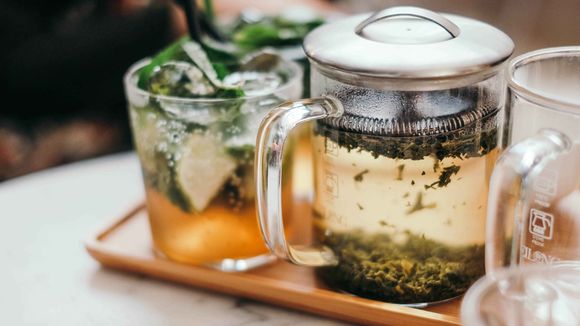
Photo by Massimo Rinaldi on Unsplash
Natural Remedies
Turmeric (Curcuma longa)
Turmeric, a popular spice, has shown potential anticancer properties due to its active compound, curcumin. Studies suggest that curcumin may inhibit the growth of cancer cells and induce apoptosis (programmed cell death) in pancreatic cancer cells. Incorporating turmeric into your diet or taking curcumin supplements may be beneficial, but it's essential to consult your doctor before doing so.
Turmeric Golden Milk
Ingredients:
- 1 cup milk (dairy or plant-based)
- 1/2 teaspoon turmeric powder
- 1/4 teaspoon ground black pepper
- 1 teaspoon honey (optional)
Instructions:
- Heat the milk in a saucepan over medium heat.
- Add the turmeric and black pepper to the milk and stir well.
- Simmer for about 5 minutes, but do not let it boil.
- Add honey for sweetness if desired. Enjoy before bedtime.
Green tea (Camellia sinensis)
Green tea is rich in antioxidants, including catechins like epigallocatechin gallate (EGCG), which have shown potential anticancer effects. Some studies have indicated that EGCG can inhibit the growth of pancreatic cancer cells and suppress tumor development.
Green Tea Citrus Refresher
Ingredients:
- 1 green tea bag
- 1 cup hot water
- Juice of 1/2 lemon
- 1 teaspoon honey (optional)
- Ice cubes
Instructions:
- Steep the green tea bag in hot water for 3-5 minutes.
- Remove the tea bag and let the tea cool to room temperature.
- Add lemon juice and honey (if using) to the tea and stir well.
- Pour the tea over ice cubes and enjoy this refreshing beverage.
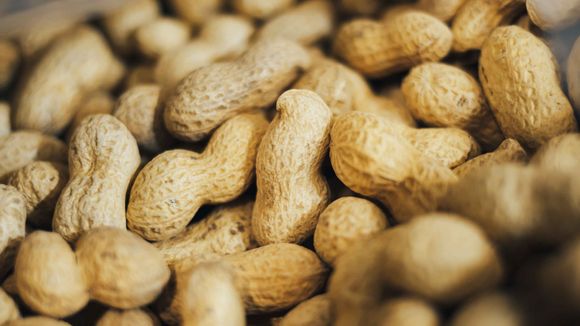
Photo by Vladislav Nikonov on Unsplash
Anticancer Properties of Natural Compounds
- Resveratrol: Found in grapes, berries, and peanuts, resveratrol has demonstrated potential in inhibiting pancreatic cancer cell growth and inducing apoptosis. Research suggests that resveratrol may also suppress inflammation and angiogenesis, processes that support cancer development.
- Quercetin: Quercetin is a flavonoid present in various fruits and vegetables, such as apples, onions, and berries. Studies have indicated its potential in inhibiting the growth of pancreatic cancer cells and preventing their spread.
Questions and Answers
Q: Are there any other natural remedies that may complement pancreatic cancer treatment?
A: Yes, certain herbs and supplements like garlic, ginger, and vitamin D have shown potential in supporting conventional pancreatic cancer treatments. However, it's crucial to discuss their use with a healthcare provider to ensure they are safe and suitable for individual cases.
Q: Can pancreatic cancer be prevented through dietary changes?
A: While no specific diet can guarantee the prevention of pancreatic cancer, adopting a healthy lifestyle, including a balanced diet rich in fruits, vegetables, and whole grains, can reduce the risk of developing various types of cancer, including pancreatic cancer.
Q: What are the risk factors associated with pancreatic cancer?
A: Some common risk factors for pancreatic cancer include smoking, obesity, family history of the disease, chronic pancreatitis, diabetes, and certain genetic syndromes.
Q: Is pancreatic cancer more common in certain age groups?
A: Pancreatic cancer is more commonly diagnosed in individuals above the age of 45, with the risk increasing with age. However, it can affect people of all age groups.
Q: Can pancreatic cancer be cured if detected early?
A: Early detection of pancreatic cancer can significantly improve the chances of successful treatment and long-term survival. However, the prognosis depends on various factors, including the stage of cancer and the overall health of the individual. Prompt medical attention and treatment are crucial for better outcomes.
References
American Cancer Society. (2021). Key Statistics About Pancreatic Cancer.
Wong, H., & Khor, T. O. (2019). Drug-Botanical Interactions for Targeting Cancer Stem Cells in Pancreatic Cancer: From Bench to Bedside. Frontiers in Pharmacology, 10, 392.
He, Z. Y., Zheng, W., Xu, B., & Ma, W. Y. (2020). The role of curcumin in pancreatic cancer: an update and review. Oncology Letters, 20(2), 107.
Surh, Y. J., & Chun, K. S. (2013). Cancer prevention by tea: animal studies, molecular mechanisms, and human relevance. Nature Reviews Cancer, 9(6), 429-439.
